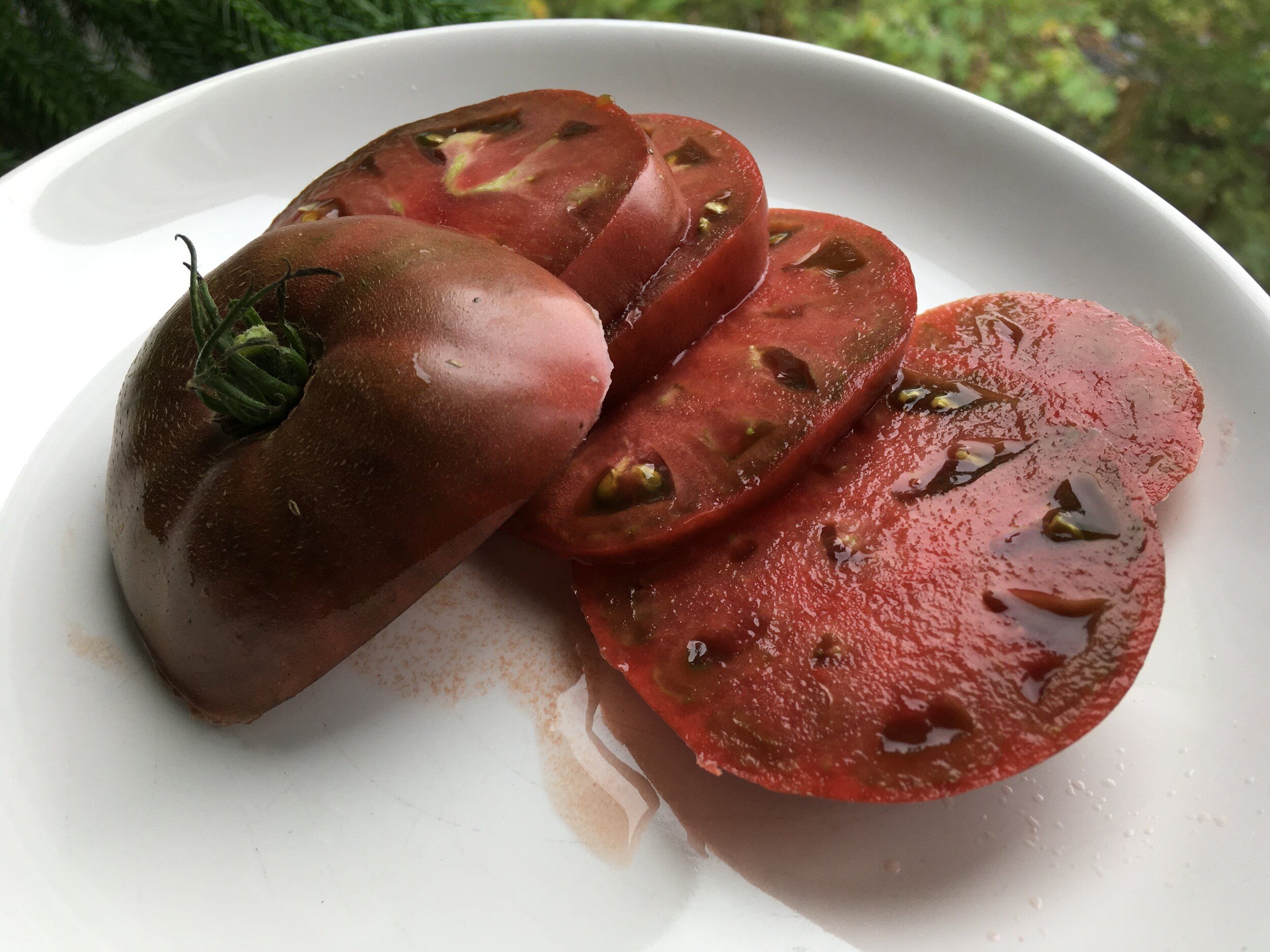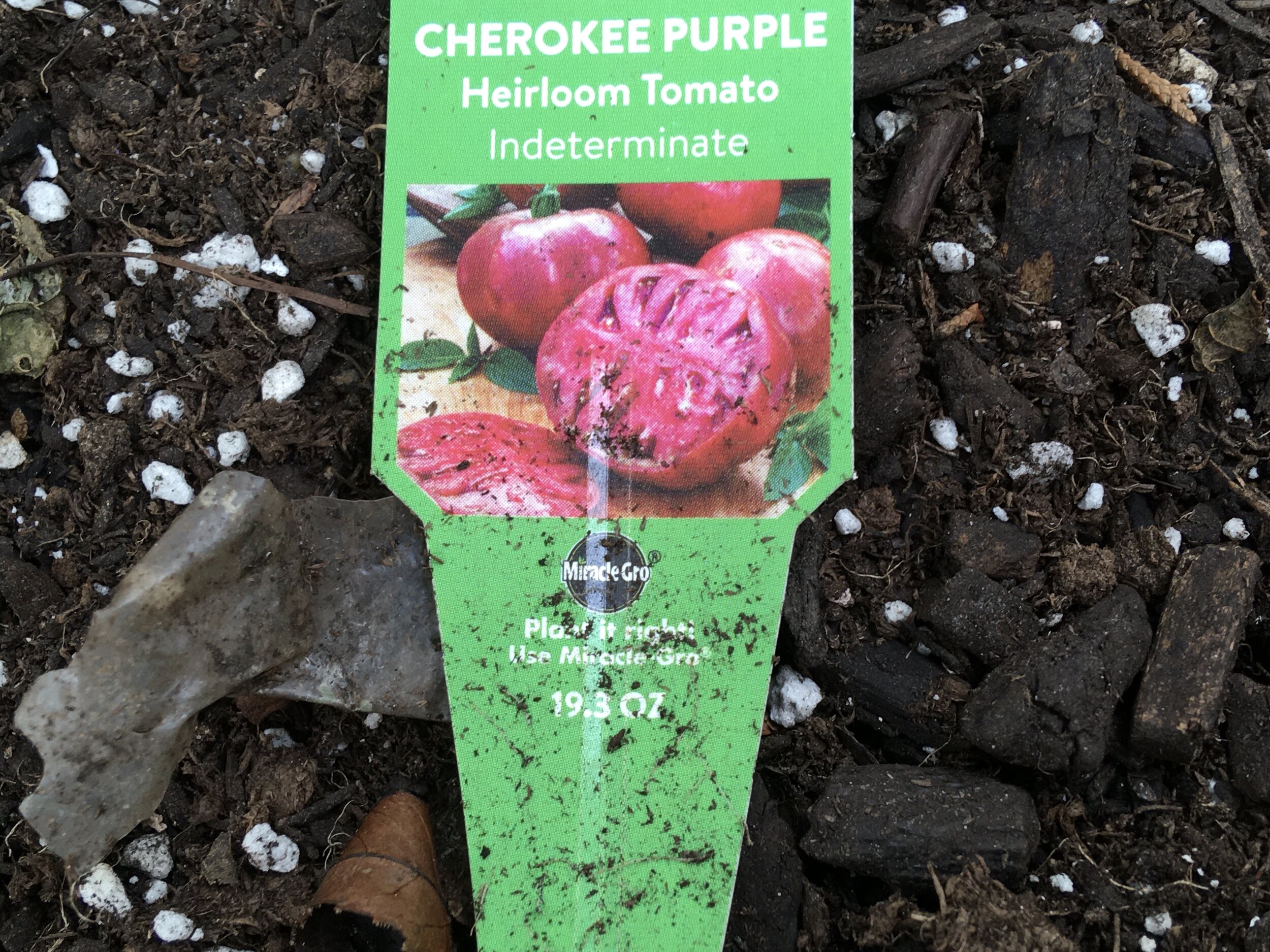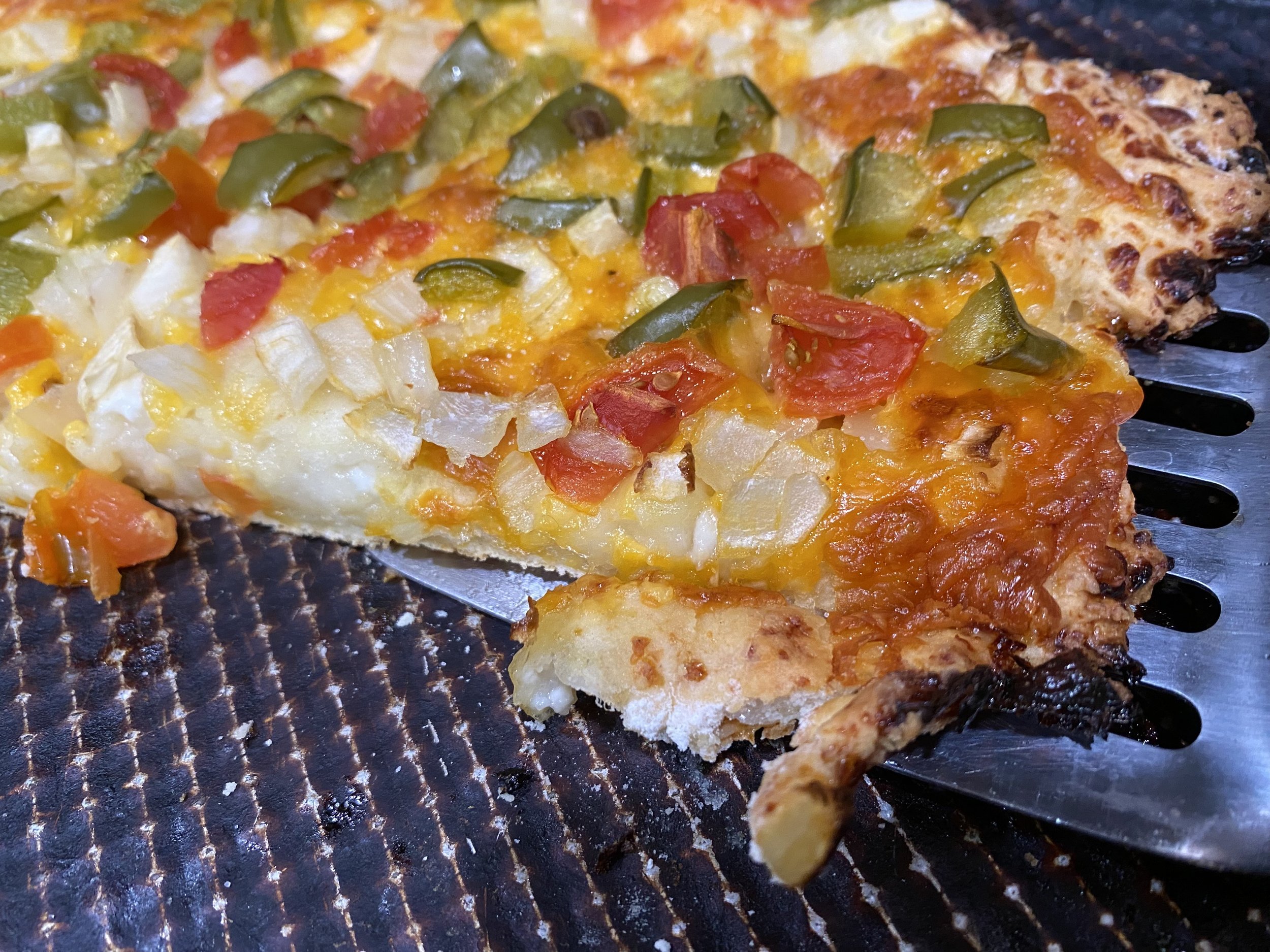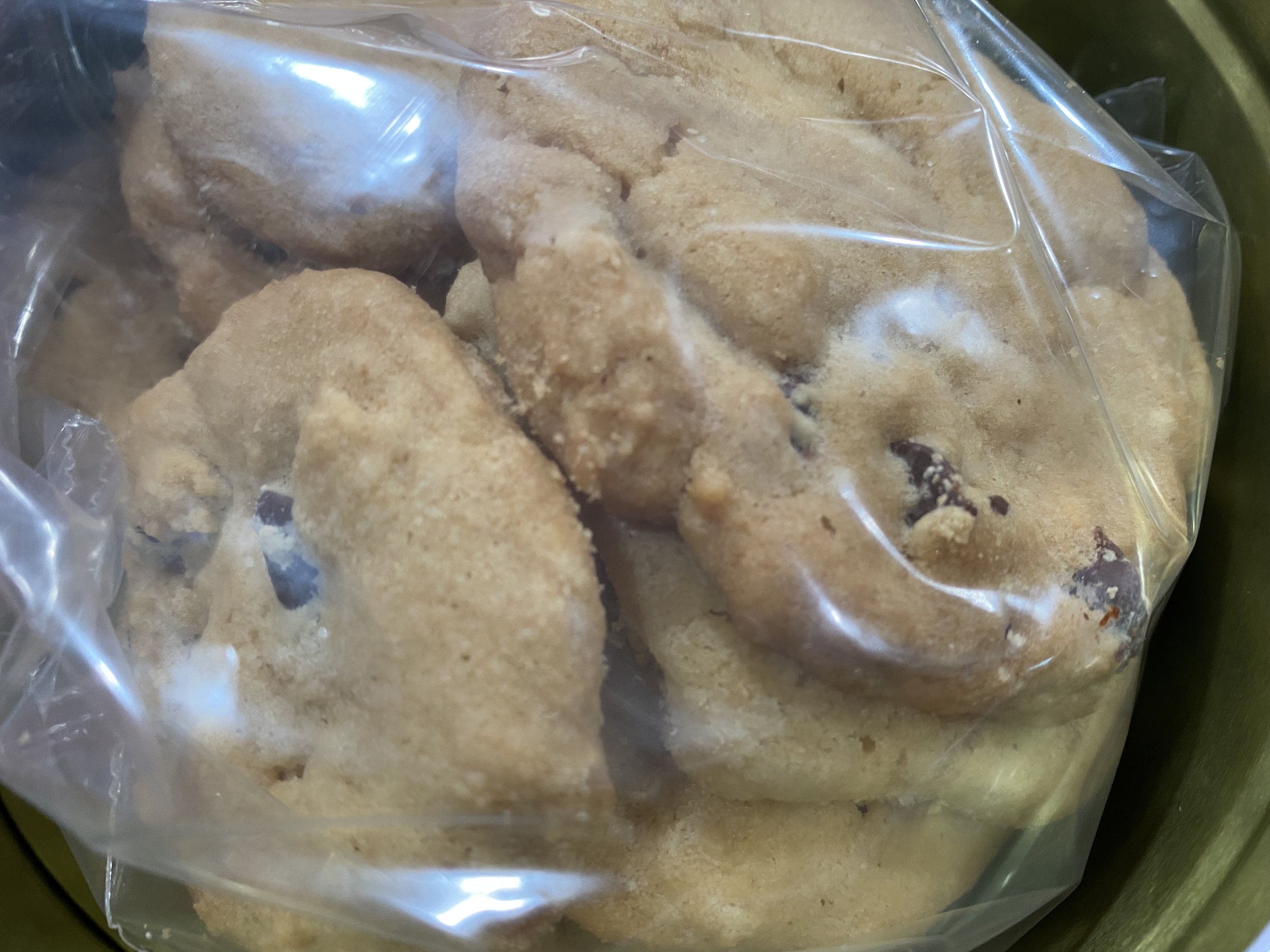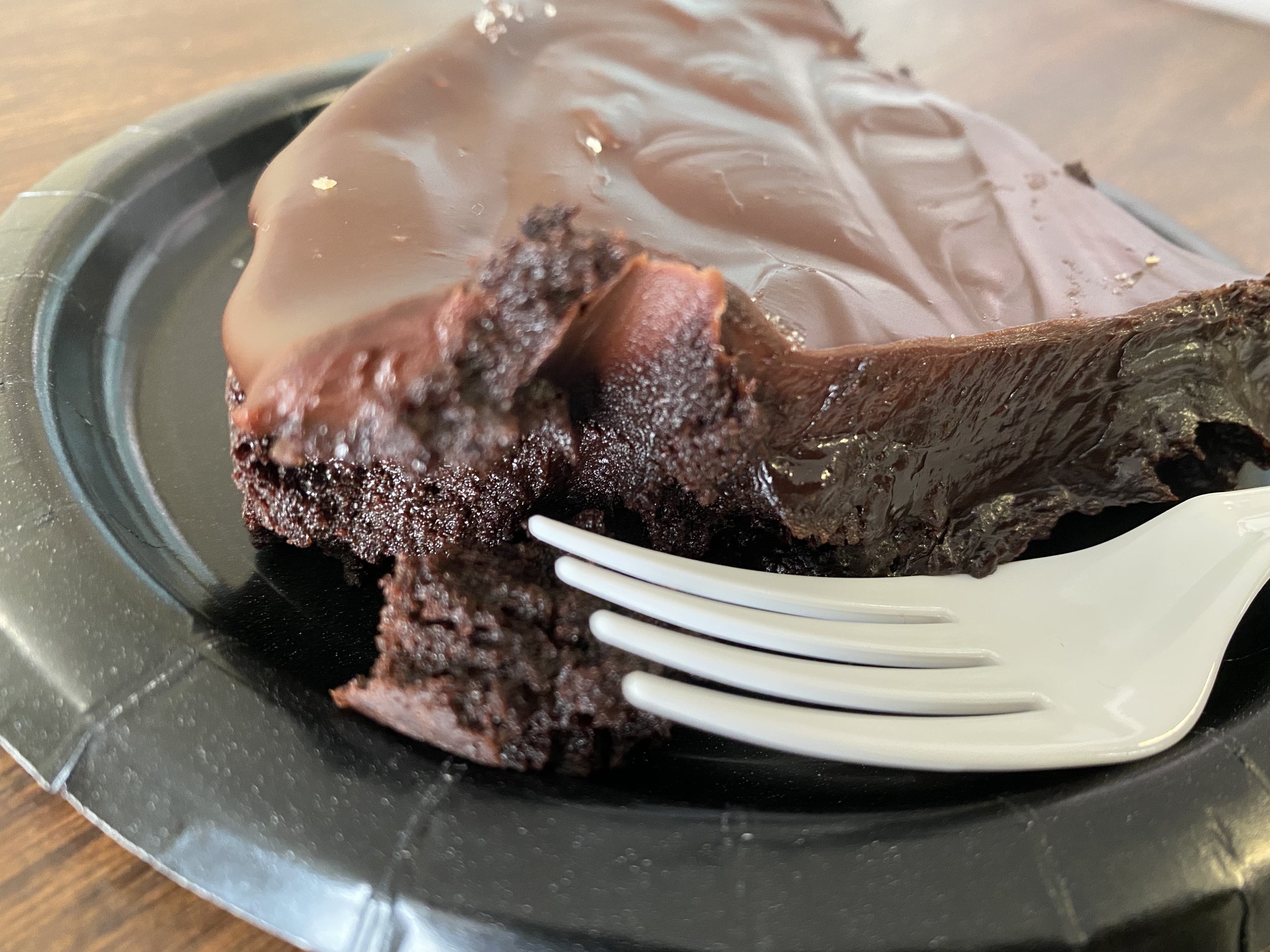Cherokee Purple Tomatoes
/My first Cherokee Purple tomato, beautiful and delicious right off the plant. (Photo by Charlotte Ekker Wiggins)
Cherokee Purple Heirloom Tomatoes
Of all of my favorite tomatoes, Cherokee Purple Heirloom Tomatoes are now on top of the list.
These dark red tomatoes are not only beautiful but delicious, a nice combination of sweet and savory.
A friend gave me some starts many years ago but they didn’t make it so I decided to try them again this year. An indeterminate variety, Cherokee Purple Tomatoes will keep growing and blooming until a hard frost kills them off. In warmer parts of the country, Cherokee Purple Tomatoes will keep growing through our four seasons. If i had room to bring them inside over winter, they would continue to grow and produce, something I have done with other favorite indeterminate tomato plants over the years.
According to National Public Radio, a retired chemist from Raleigh, North Carolina gets the credit for introducing recent North America residents to this tomato. Craig LeHoullier has one of the largest personal tomato collections in the country. In his small yard at his home in the Raleigh suburbs, he can grow only 200 plants, so each year he must pore over the collection to decide what makes the cut.
Cherokee Purple Tomatoes are now readily available for spring planting. (Photo by Charlotte Ekker Wiggins)
An avid gardener for much of his life, LeHoullier joined the Seed Savers Exchange in 1986 and began connecting with other gardeners and seed savers. One day in 1990, a packet of tomato seeds arrived in LeHoullier's mail with a note. The sender was John Green of Sevierville, Tenn., who wrote that the seeds came from very good tomatoes he'd gotten from a woman who received them from her neighbors. The neighbors said that the varietal had been in their family for 100 years, and that the seeds were originally received from Cherokee Indians.
No one has been able to confirm the story but the Smithsonian Institute said it’s possible the seeds were indeed from the Tennessee Valley where the Cherokee lived more than 100 years ago.
Charlotte

